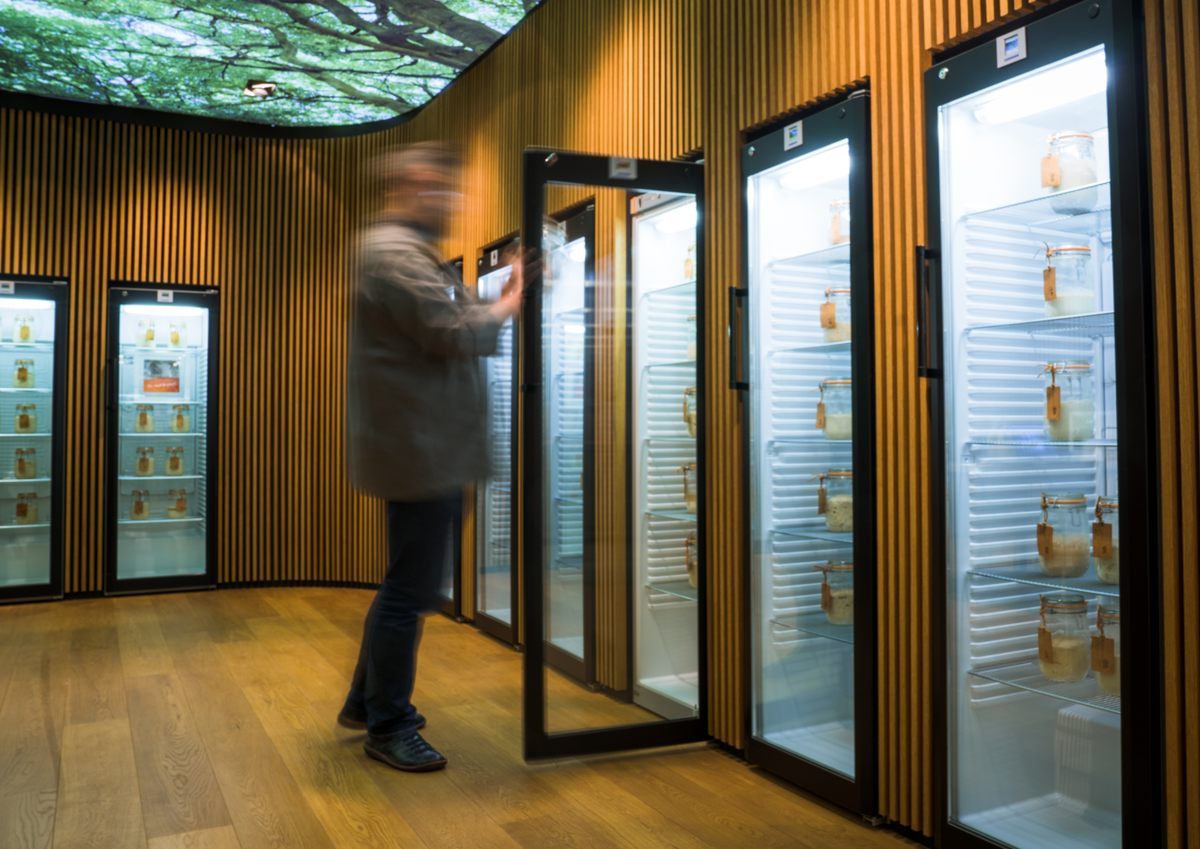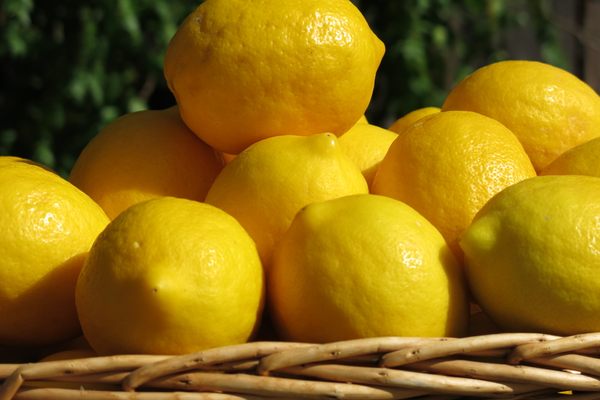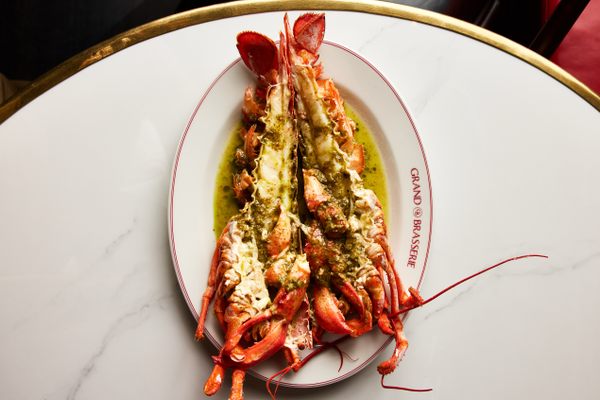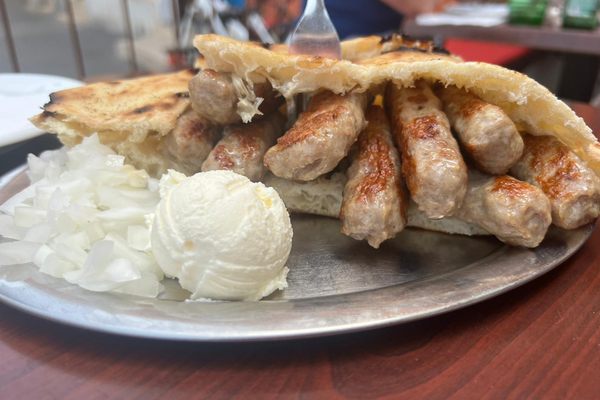Listen to Stories About Cocoa Plants in Quarantine and Communicating With Cows
Our favorite culinary adventures from the Atlas Obscura podcast.
This article is adapted from the July 9, 2022, edition of Gastro Obscura’s Favorite Things newsletter. You can sign up here.
Gastro Obscura does not have a podcast. Sorry about that.
Except we sneakily kind of do, because my food-focused colleagues regularly appear on the Atlas Obscura podcast to report on culinary curiosities, from the world’s oldest ham to the cultivation of blueberry fields by fire.
Since the Atlas Obscura podcast launched in March of 2021—with a dispatch from Turkmenistan’s Gates of Hell—we’ve released too many food-or-drink episodes to include every one in this newsletter. So, this week, I want to share my favorites, ranked roughly in order from very great to even more great to absolute best. Enjoy!
6) International Cocoa Quarantine Center
Cocoa is a finicky plant beset by diseases with scary names such as Witches’ Broom (found in Latin America) and Vascular Streak Dieback (Africa). If these various viruses and fungi went from regional scourges to global ones, a Hershey’s bar could become as rare and expensive as caviar.
That’s according to Nicola Twilley, author of Until Proven Safe: The History and Future of Quarantine, who guest-hosted this episode about the International Cocoa Quarantine Center, a facility outside London devoted to preventing an otherwise-inevitable chocolate apocalypse.
5) Sourdough Library
Until around 160 years ago, all bread was sourdough, made with a living, burbling “starter” that needed to be fed and kept alive. Then commercial yeasts came along, offering an easier, less temperamental way of making bread, and most bakers gladly gave up their starters.
This made starters, which were once passed down through generations, something of an endangered species.
Enter Karl De Smedt, who spent years traveling the world to collect sourdoughs and create a living library of starters in his native Belgium. It’s a boon for sourdough research, but, as explained by my colleague Annie Ewbank, it’s also a lot more work than stacking books on a shelf.
4) Organ Stop Pizza
Believe it or not, the largest theater pipe organ in the world sits in the middle of a huge pizza restaurant in Mesa, Arizona. And the combination of organ pipes and pizza was once a bonafide American dining trend.
How did this happen? What does Chuck E. Cheese have to do with it? And what song do customers most frequently request from the resident organ players? Host Dylan Thuras has the answers.
3) Grandma Ida’s Nut Rolls Gravestone
My fellow Gastro Obscura editor Sam O’Brien is on a quest to document and learn about recipe gravestones. Her current count? Nine.
This episode highlights one of them: the grave of Ida Kleinman in Rehovot, Israel, which is engraved for eternity with her recipe for nut rolls.
Ida never wrote down her recipe, but her son watched her in the kitchen one day to document it. This was just one part of his meticulous process of paying tribute to his parents, which he movingly describes to Sam in this episode. Listening inspired me to ponder how I can one day remember and memorialize my own loved ones just as beautifully.
2) Kulning
The great thing about launching a podcast is that you can look back at articles you’ve published and say, “Finally we’ll be able to hear that story.”
The ultimate example of this is Abbey Perreault’s “The Spellbinding Swedish Song That Calls Cows Home” about kulning, songs created centuries ago to communicate with livestock.
Two years after writing that article, Abbey headed out with a microphone and podcast producer Sarah Wyman to try communing with cows herself. Wear a good pair of headphones for this one.
1) World’s Oldest Edible Ham
When Sam O’Brien was young, she visited the Vatican with her Catholic-school classmates and saw the Pope. This, she explains, is the only experience that came close to matching the emotions of her first glimpse of the world’s oldest edible ham in Smithfield, Virginia.
As of July 9, the ham turned 120 years old. So why not celebrate by listening to Sam gush about holding (a replica of) the ham and explain why this very well-aged meat wears a handsome gold collar?
Gastro Obscura covers the world’s most wondrous food and drink.
Sign up for our regular newsletter.



























Follow us on Twitter to get the latest on the world's hidden wonders.
Like us on Facebook to get the latest on the world's hidden wonders.
Follow us on Twitter Like us on Facebook